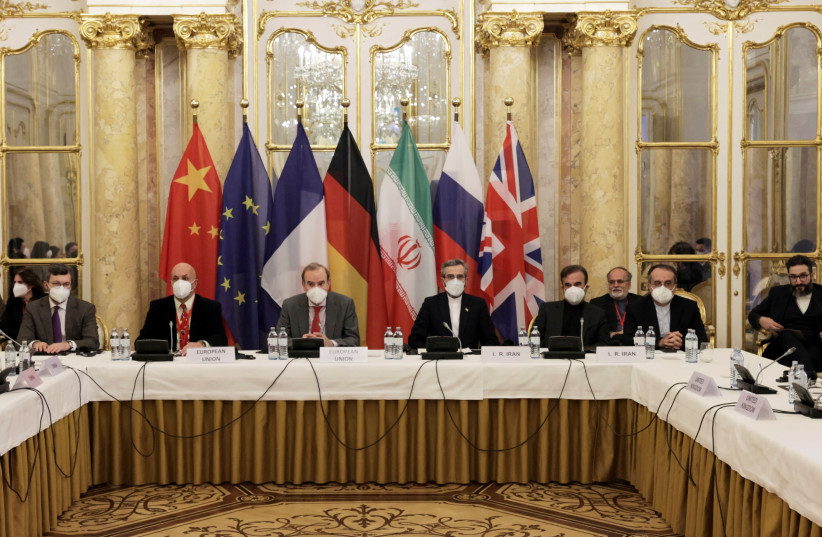The United States does not have the will to reach an agreement to revive a 2015 nuclear deal with Iran at talks in Vienna where it is insisting on "unacceptable proposals," Iran's top security official, Ali Shamkhani, said on Thursday.
The 2015 deal that lifted sanctions on Iran in return for curbs on its nuclear program was on the verge of being restored after 11 months of negotiations until Russia presented a new obstacle by demanding written guarantees from the United States that Western sanctions over its invasion of Ukraine would not affect its trade with Iran.
Shamkhani said on Twitter that in the absence of a political decision by the United States the talks "become more complicated every hour."
The United States “has no will to reach a strong agreement," he said adding that it was making “unacceptable proposals (and) insists on a quick agreement with false pretences”.
He did not elaborate on the US proposals.

Negotiators in Vienna are still trying to tackle a few key issues, said the semi-official Tasnim news agency citing an unnamed source.
US Under Secretary of State for Political Affairs Victoria Nuland on Tuesday accused Russia of seeking to reap extra benefits from its participation in the effort to restore the nuclear agreement.
A revived nuclear deal cannot limit Tehran's pursuit of its missile and space programs, said Nour news, which is affiliated with a top security body.
Iran is not willing to negotiate on its defense capabilities and regional policies, Nour news added in a tweet.
Iran's Islamic Revolutionary Guard Corps (IRGC) has successfully put a second military satellite, the Noor 2, into orbit, the state-media said on Tuesday.
The US military says the same long-range ballistic technology used to put satellites into orbit could also allow Tehran to launch longer-range weapons, possibly including nuclear warheads.
Tehran denies US assertions that such activity is a cover for ballistic missile development and says it has never pursued the development of nuclear weapons.
Iran has one of the biggest missile programs in the Middle East.
European negotiators from France, Britain, and Germany have temporarily left the talks as they believed they had gone as far as they could and it was now up to the United States and Iran to agree on outstanding issues.
Iran's chief negotiator, Ali Bagheri Kani, returned to Tehran unexpectedly after Russian Foreign Minister Sergei Lavrov outlined Moscow's new demands.
Iran's foreign minister said at the time that Tehran would not let its interests be harmed by "foreign elements."
Bagheri Kani flew back to Vienna on Wednesday.
